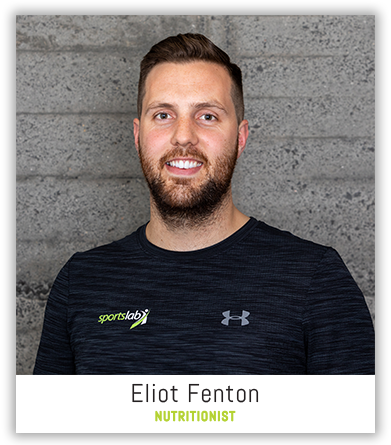Supplements – Everything You Need to Know
Photo credit: https://www.witsup.com/
The supplement industry is booming. In 2016, the Council for Responsible Nutrition put the supplement industry at around $122 billion USD in America alone. The industry is always offering a wider range of products we perceive to be good and beneficial for us. So, what is all the fuss about?
What are Supplements?
The International Olympic Committee (IOC) defines a dietary supplement as, “A food, food component, nutrient or non-food compound that is purposefully ingested in addition to the habitually-consumed diet with the aim of achieving a specific health and/or performance benefit”.
The range of supplements currently available are incredibly broad and come in very many different forms as the market continues to grow. For example:
Functional foods, or foods that are enriched with additional nutrients and other components which were not a part of their original makeup – such as fortified cereal, milk or bars.
Formulated foods and sports foods: which have been specifically designed to deliver nutrients in a more convenient form to help overcome nutritional barriers – like liquid meal replacements, gels and sports drinks.
Specific nutrients: provided in an isolated form like protein powder, iron, zinc and magnesium.
Multi-ingredient: products which contain a combination of products like a multivitamin.
Why do we use supplements?
General health: the main reason we would use a supplement for general health is when we experience particular nutrient deficiencies or even severe malnourishment, in which food cannot meet the nutritional demand. The main aim, especially from my perspective as a BSc qualified Nutritionist and Student Dietitian, is a food-first approach as food offers a higher quality of micronutrients. Supplements do not provide the same quality overall as food, but do offer a great opportunity to meet nutritional needs for individuals that cannot get this from food alone. There are medical supplements which are focused for specific deficiencies usually related to a disease state. When there are medical diagnoses requiring supplements, this may come from your GP or a Dietitian prescriber.
Performance: supplements are also regularly used in the realm of performance. Supplements like gels, sports drinks, bars and other sports foods offer convenience for athletes in consuming needed energy. It is more convenient for an athlete to consume a carbohydrate source from a gel or liquid than to try and eat a sandwich or salad. Ultimately, a supplement can help support and enhance an athlete’s performance. The IOC consensus statement justifies the rationale for athletes to use supplements to help prevent nutrient deficiencies and to offer conveniences that will benefit their performance. This could also be focussed on improving adaption post-training. For many athetes they see supplements as offering a competitive edge.
Are they Effective?
Within the different forms of supplements there are characteristics we need to consider. We need to consider the function of a supplement – whether it is aimed at building muscle, providing energy or interacting with other body functions. At the end of the day, supplements can be effective when used correctly and under supervision and guidance. If we are taking the wrong supplement, the timing of when we take this supplement is sub-optimal, or we are missing other factors that help with the effective absorption of the supplement, then we are not gaining the full benefit from the supplements.
General health: as mentioned above, it may be necessary with specific medical diagnoses/deficiencies to use supplements as the first point of call. When used correctly, supplements for management of medical diagnoses/deficiencies are proven to be effective. Dependent on the supplementation needed for the health deficiency, you should receive advice from your GP, Dietitian or registered nutritionist to talk about what will work best. This will help you to get the best form of the required supplement and make sure you are getting the full benefits.
Performance: within a high-performance setting, supplements of sports foods can be effective, if energy output exceeds the ability to match it with food. Supplements can be effective to enhance performance as the last point of call, after good training and effective whole food nutrition. Supplements should never be used as a replacement for a healthy, well-balanced diet. Athletes should be guided by their dietitian or registered nutritionist and be educated on the reason why the supplement is being taken. Athletes should also be aware of the legalities of the supplements they are taking. For more information on this head along to Drug Free Sport New Zealand, as well as the Australian Institute of Sport (AIS) (links below) for advice for athletes, parents and coaching staff as well as supplement grading tables (AIS website).
The Australian Institue of Sport has good resources and tables which breaks supplements into classes based on the merit of the latest data. The class A supplement list is based on strong evidence and the use in sport and therefore may provide a performance benefit. However, the use of these supplements is only recommended for identified athletes and under the best practice protocols in which they are supervised by a dietitian or registered nutritionist.
Food First Approach
In general, food can easily provide the adequate amount of nutrients needed for performance and day to day life without requiring supplementation. The main priority for people should be to critically think about how they are getting their nutrients. For the everyday person looking to improve or maintain their health and to remain physically active, food is their best friend. As labels of supplements say they only ‘support a well-balanced diet”. Supplements are not a magic pill to a healthier lifestyle and should not be used as a quick fix to the underlying issues of our diet.
No matter whether you are your average gym-goer, high performing athlete or starting to think a bit more about your health, the best place to start is with your food. Being healthy is about getting the basics right. You should aim to eat your nutrient needs through food first and, if needed, enlist the help of a registered or BSc Nutritionist or a Dietitian to help you develop good long-lasting nutritional habits. And if diet alone isn’t meeting your needs, then they can help you find other solutions.
In conclusion, if you’re thinking about how to improve your performance and ways to improve your everyday nutrition to keep you in peak condition, come in and let’s help you start creating the best functional version of you.
Eliot Fenton is a Sports Lab nutritionist who is passionate about food as fuel and food as enjoyment. He is currently completing his Master’s in dietetics. Rumor on the block is that Eliot’s homemade brownie is a bit of a show-stopper.


